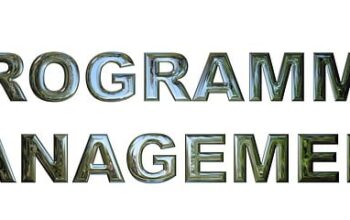Proactive property management is a strategic approach that focuses on preventing issues before they arise, as opposed to reacting to problems after they occur. By implementing regular inspections, preventive maintenance schedules, and staying informed about tenant needs and local regulations, this method enhances communication, maximizes property value, minimizes vacancy rates, and optimizes resource allocation through data analysis. Unlike reactive management, which addresses immediate concerns, proactive management saves time and money by anticipating challenges and avoiding recurring expenses. This approach fosters happier tenancies and smoother operations, making it ideal for dynamic rental markets or frequent tenant requests, while a balanced strategy considers transitioning to proactive methods for long-term benefits.
In the realm of property management, a fundamental choice awaits: proactive or reactive? This article explores these contrasting approaches, guiding you through their nuances. We delve into understanding proactive property management as a strategic, preventive measure, highlighting its benefits in fostering a seamless living environment. Conversely, we examine reactive management, where challenges are met head-on. By weighing the pros and cons, you’ll gain insights to choose the optimal strategy for your property needs, emphasizing the significance of proactive property management.
- Understanding Proactive Property Management: The Strategic Approach
- Benefits of Being Proactive: Preventing Issues Before They Arise
- Reactive Management: Responding to Challenges as They Occur
- Choosing the Right Strategy: When Proactive Isn't Always Best
Understanding Proactive Property Management: The Strategic Approach

Proactive property management is a strategic approach that focuses on preventing issues before they arise rather than reacting to problems once they occur. Unlike reactive management, which deals with emergencies and repairs, proactive managers anticipate potential challenges by regularly inspecting properties, implementing preventive maintenance schedules, and staying updated with tenant needs and local regulations. This forward-thinking methodology aims to maximize property value, minimize vacancy rates, and foster positive tenant relationships.
Through regular assessments and data analysis, proactive property managers can identify trends, predict maintenance needs, and optimize resource allocation. By taking a strategic stance, they can also better communicate with tenants, addressing concerns before they escalate. This approach ultimately contributes to a smoother operating process, cost savings, and improved overall property performance.
Benefits of Being Proactive: Preventing Issues Before They Arise

Being proactive in property management offers a range of benefits, particularly in preventing issues before they even arise. Unlike reactive management, which deals with problems as they occur, proactive strategies focus on anticipating potential challenges and taking preventive measures. This approach can save time and money in the long run by reducing the need for costly emergency repairs or quick fixes.
By regularly inspecting properties, property managers following a proactive model can identify minor issues early on—such as leaky faucets, loose door handles, or electrical malfunctions—and address them promptly. This not only maintains the overall quality of the property but also ensures that small problems don’t escalate into major, more expensive crises. Such a strategic, proactive mindset fosters a smoother, more efficient rental experience for both property owners and tenants alike.
Reactive Management: Responding to Challenges as They Occur

In Reactive Property Management, the approach is to address challenges and issues as they arise, rather than anticipating or preventing them proactively. This style of management often involves responding to unexpected events, such as maintenance problems, tenant complaints, or market fluctuations. Real estate professionals in this category typically operate on a more reactive mindset, where their primary focus is on quick solutions to immediate concerns. They excel at crisis management, ensuring that each issue is promptly addressed and resolved, maintaining the stability and functionality of the properties under their care.
While Reactive Management can effectively handle short-term issues, it may not be the most efficient strategy for long-term success in property management. It can lead to a reactive cycle where problems are continuously addressed without addressing the underlying causes, which could result in recurring expenses and dissatisfied tenants. In contrast, Proactive Property Management encourages anticipating challenges and implementing strategies to prevent them from becoming major issues, ultimately saving time, resources, and fostering happier, more stable tenancies.
Choosing the Right Strategy: When Proactive Isn't Always Best

While proactive property management is renowned for its benefits in preventing issues, it’s not always the best strategy for every situation. In dynamic rental markets or with tenants who consistently require minor repairs and maintenance, a more reactive approach might be more suitable. Reactive management involves addressing problems as they arise, focusing on quick fixes and minimal disruption to tenants. This can be particularly effective in managing unexpected events like natural disasters, sudden equipment failures, or tenant emergencies that require immediate attention.
Instead of allocating resources towards regular inspections and preventative measures, reactive management empowers landlords and property managers to respond efficiently when issues surface. However, it’s crucial to maintain a balanced approach, regularly reviewing maintenance records and tenant feedback to identify recurring problems that may warrant a shift towards more proactive measures for long-term benefits.
In the dynamic landscape of property management, adopting a proactive mindset offers significant advantages. By anticipating and addressing potential issues, landlords can mitigate risks and ensure smoother operations. However, it’s not always about being proactive; reactive management has its place when dealing with unexpected challenges. Ultimately, the ideal approach is a balanced combination of both strategies, tailored to individual property needs. Understanding when to be proactive and when to react allows for effective decision-making, ultimately enhancing the overall property management experience.




